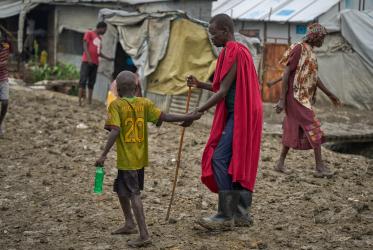The expansion of mobile networks and adoption of new technologies presents exciting opportunities for economic and human development. However, for women and girls with disabilities, they are at risk of being left behind in the race to adopt technology and get online. This is due to the fact that research shows that persons with disabilities are less likely to have meaningful online access, be cyber literate, and consequently work in the sector. They are also less likely to be taught information technology in schools and in most cases are dissuaded from pursuing related careers.
Since the digital revolution is here with us, we need to ensure that as many people as possible can get access to the internet. With the current statistics, 37% of women don’t have access to the internet globally—how about women with disabilities? Unfortunately, we have yet to get the statistics for the women with disabilities because no research has been done in that area.
What is needed is to provide inclusive and equitable quality education at all levels – early childhood, primary, secondary, tertiary, technical, and vocational training are a start towards DigitALL. Such an opportunity will guarantee access to lifelong learning opportunities that help people acquire the knowledge and skills needed to explore opportunities, participate fully in society, and achieve the Sustainable Development Goals.
In February this year, the United Nations hosted a workshop with the theme of “Science in Braille.” The workshop introduced the participants to a STEM-focused program designed to empower blind children by providing them with engaging, hands-on learning opportunities. During the workshop, participants worked in small groups, utilizing snap-circuit electronic building blocks to construct a smart cane, a device designed to assist the visually impaired in navigating their environment. Additionally, participants also had the opportunity to learn about the use of sensors in measuring the distance to obstacles.
The workshop left us with some key principles such as: the belief that education is a fundamental human right, the importance of inclusivity and accessibility in science education, the critical role of foundational science learning, the promotion of sustainable development through education, and the necessity of transforming science teaching methods as well as the value of investing in science education to yield individual and societal returns.
Ensuring that persons with disabilities are part and parcel of the solution for equality and equity in digital technology, will no doubt assure us that a better world for everyone is an accessible world for everyone.








